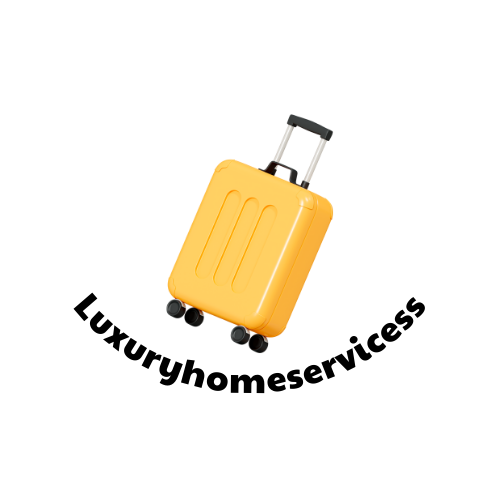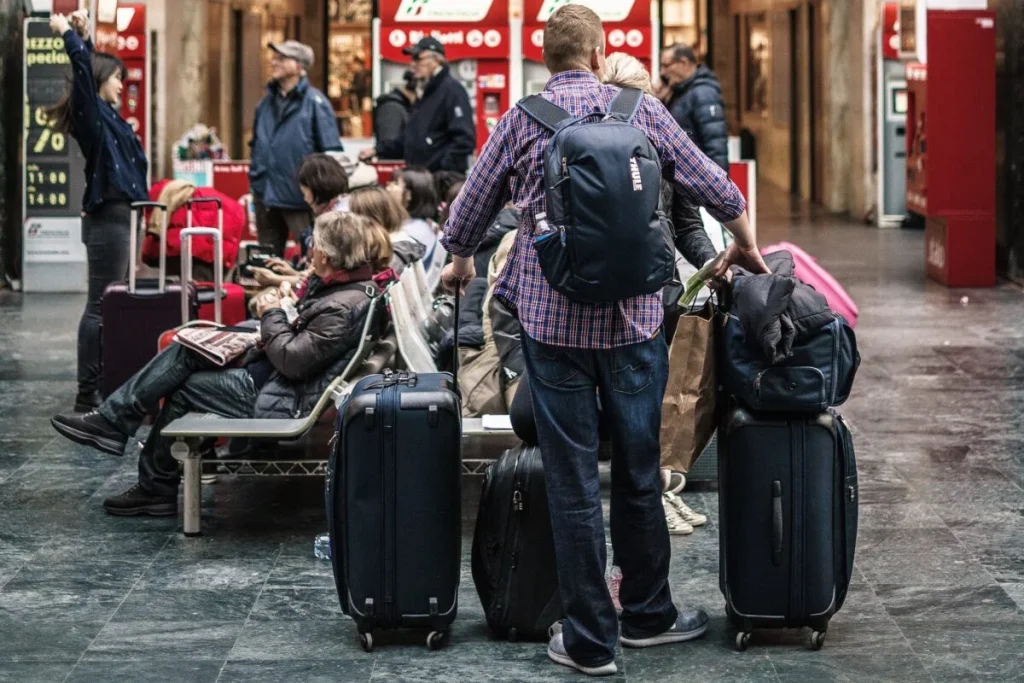Blog
Suitcases vs. Backpacks: Which One to Choose?
When preparing for a trip, one of the most important decisions you’ll need to make is choosing the right luggage. The choice often comes down to two of the most popular options: suitcases and backpacks. Both have their advantages, and the right choice for you depends on your travel style, the type of trip, and personal preferences. In this guide, we’ll break down the pros and cons of both suitcases and backpacks to help you determine which one is the best fit for your next adventure.
The Case for Suitcases
Suitcases have long been the go-to travel companion for those heading on vacations, business trips, or long journeys. Whether you’re flying, taking a train, or driving to your destination, suitcases offer a range of benefits that make them a convenient and stylish option for packing.

Pros of Suitcases:
- More Organization and Storage Space Suitcases often provide more internal organization and packing space than backpacks. With multiple compartments, zippers, and expandable sections, suitcases allow for easy separation of clothes, shoes, toiletries, and other personal items. Many models also come with built-in compression straps, internal dividers, and mesh pockets, which help keep your belongings organized and wrinkle-free.
- Easy to Roll One of the main advantages of a suitcase, especially a four-wheel spinner model, is its ability to roll smoothly through airports and other transport hubs. This means you don’t have to carry the weight of your luggage on your back. The maneuverability offered by spinner wheels is especially useful for those who want to avoid lifting heavy luggage.
- Great for Longer Trips If you’re traveling for an extended period or need to pack a variety of items, a suitcase can offer more space and flexibility. You can fit in everything from clothing to extra shoes, toiletries, and even bulky items like jackets or electronics. Many suitcases come with a larger capacity, making them ideal for vacations or business trips that require more gear.
- Professional and Stylish For business travelers or those attending formal events, suitcases are often seen as more professional and stylish. High-quality suitcases, especially hard-shell models or luxury brands, offer a sleek and polished look. If you need to make a good impression when you arrive at your destination, a well-designed suitcase can elevate your travel experience.
- Security Features Many suitcases are equipped with built-in TSA-approved locks, providing extra security for your belongings. Some models even come with smart features like digital locks or Bluetooth tracking, which can be helpful for those concerned about losing their luggage or ensuring their valuables stay safe.
Cons of Suitcases:
- Can Be Bulky and Heavy While suitcases offer ample storage space, they can also be bulky and heavy, especially if you pack them full. This can be a problem if you need to carry or store them in tight spaces. Additionally, a large suitcase might not be practical for trips where you need to maneuver through crowded areas or use public transportation.
- Limited Accessibility Suitcases are typically packed from the top, which means you’ll need to unzip them and open the entire case to access any items near the bottom. This can be inconvenient if you need something urgently or if your suitcase is packed to the brim.
- Not Ideal for Hiking or Rough Terrain If you plan to travel to areas with rough terrain or go on outdoor adventures like hiking, a suitcase may not be the best option. While modern suitcases often feature durable wheels, they aren’t designed for hiking through uneven terrain or traveling in places without smooth paths.
The Case for Backpacks
Backpacks have become a popular choice for travelers who prioritize convenience, versatility, and the ability to move freely. Whether you’re backpacking through Europe, exploring a city, or just need a hands-free option for a short trip, a backpack can be a great alternative to traditional luggage.

Pros of Backpacks:
- Hands-Free and Easy to Carry One of the main advantages of a backpack is the ability to carry it on your back, leaving your hands free. This is particularly useful for activities like sightseeing, hiking, or navigating crowded areas. You won’t have to worry about dragging your luggage or finding a place to store it—your backpack stays with you at all times.
- Versatile for Different Activities Backpacks are versatile and can be used for a variety of purposes. Whether you’re taking a short city trip, a hiking excursion, or even a day trip to the beach, a backpack can carry everything you need without the bulk. Many travel backpacks come with adjustable straps, extra compartments, and laptop sleeves, making them perfect for both leisure and business travel.
- Lightweight and Compact Backpacks are typically lighter and more compact than suitcases, making them a great option for those who prefer to travel light. They can easily be stored in overhead bins or under your seat on a plane, saving you the hassle of checking in luggage. If you want to avoid baggage fees or make your travel experience simpler, a backpack is an excellent choice.
- Easier for Tight Spaces A backpack is perfect for navigating tight spaces, whether you’re climbing stairs, getting on a bus, or walking through narrow streets. Since it sits snugly against your back, you won’t have to worry about bumping into people or obstacles like you might with a bulky suitcase.
- Great for Short Trips If you’re going on a short trip or don’t need to pack much, a backpack can be the perfect size. Whether it’s a weekend getaway or a day trip, a backpack can hold your essentials, such as clothes, toiletries, and electronics, without the need for excess baggage.
Cons of Backpacks:
- Less Storage Capacity While backpacks are great for packing light, they typically offer less space than suitcases. If you’re traveling for more than a few days or need to bring extra items, a backpack might not provide enough room. Overpacking a backpack can also make it uncomfortable to carry.
- Weight Distribution Although backpacks are designed to distribute weight evenly, carrying a heavy load on your back for an extended period can still lead to discomfort or strain. This is especially true if your backpack is poorly padded or you don’t pack it efficiently.
- Security Concerns Backpacks can be more vulnerable to theft, especially in crowded areas. With your belongings stored in the back, it’s easier for someone to unzip your bag and snatch something without you noticing. Investing in a backpack with lockable zippers or anti-theft features can mitigate this risk, but it’s still something to be aware of.
- Not Ideal for Formal Settings While some backpacks have a sleek design, they’re generally not as professional-looking as suitcases. If you need to attend a formal event or business meeting, a backpack may not create the polished appearance that a suitcase can.
Suitcase vs. Backpack: Which One Should You Choose?
The choice between a suitcase and a backpack ultimately depends on the type of trip you’re planning and your personal preferences. Here’s a breakdown of when you might prefer one over the other:
- Choose a Suitcase if:
- You’re traveling for an extended period and need to pack a variety of items.
- You prefer the ease of rolling your luggage and don’t want to carry weight on your back.
- You’ll be traveling in an environment where smooth paths and ample storage are available (e.g., airports, hotels).
- You value organization and the ability to separate your clothing and personal items.
- Choose a Backpack if:
- You’re traveling light for a short trip or weekend getaway.
- You’ll be navigating crowded areas, tight spaces, or rough terrain.
- You prefer hands-free travel and need mobility and flexibility.
- You want a compact, lightweight, and versatile option for your travels.
Conclusion
Ultimately, the decision between a suitcase and a backpack comes down to the nature of your trip and your personal travel style. A suitcase is great for those who need ample storage and organization for longer trips or business travel, while a backpack is ideal for travelers who value mobility, ease of use, and packing light. By understanding the pros and cons of each, you’ll be better equipped to choose the luggage option that best suits your needs and makes your travel experience more enjoyable. Happy travels!


